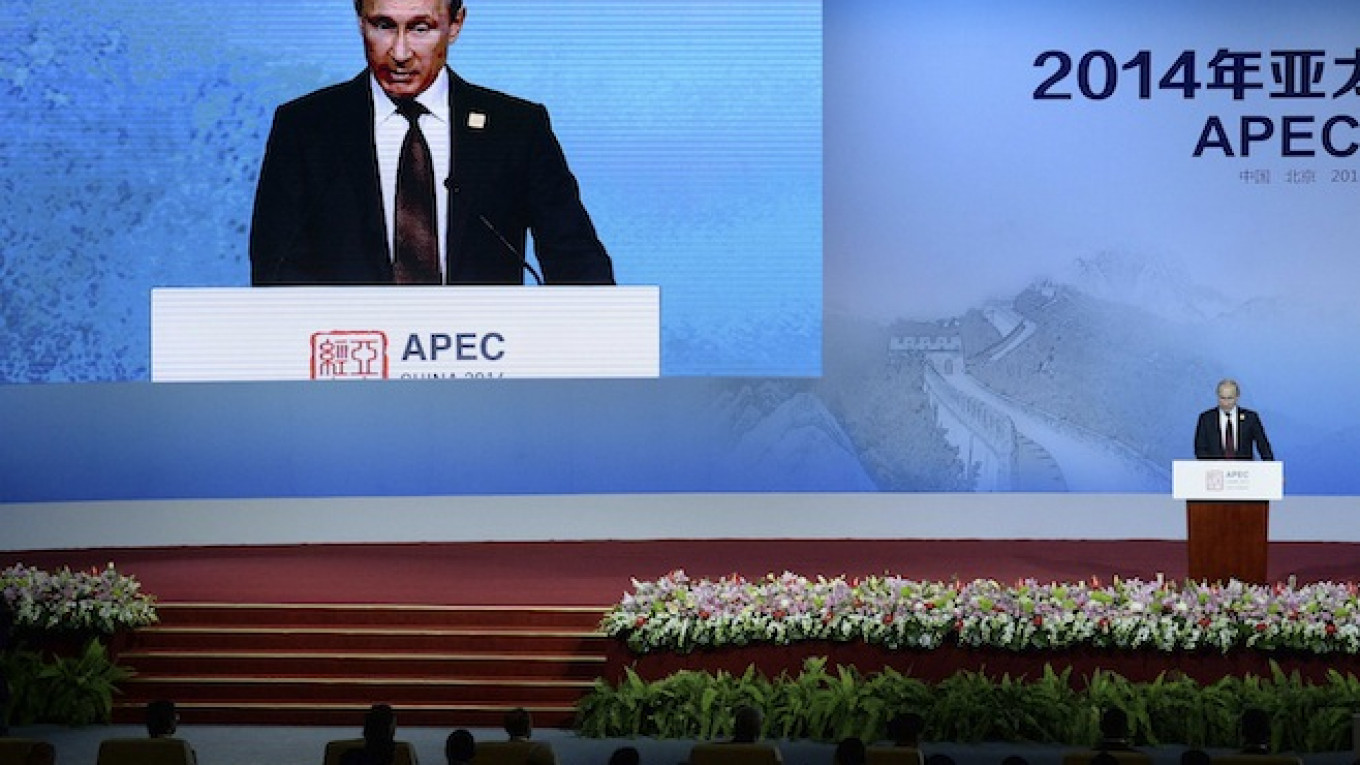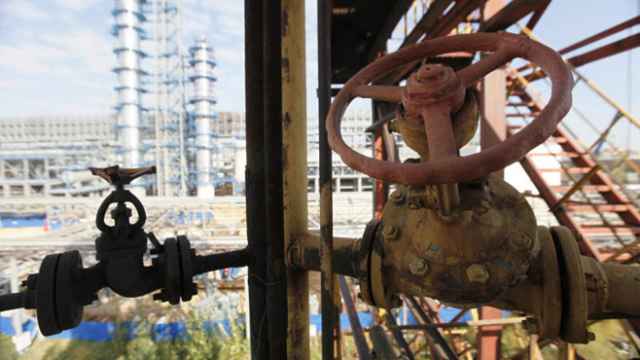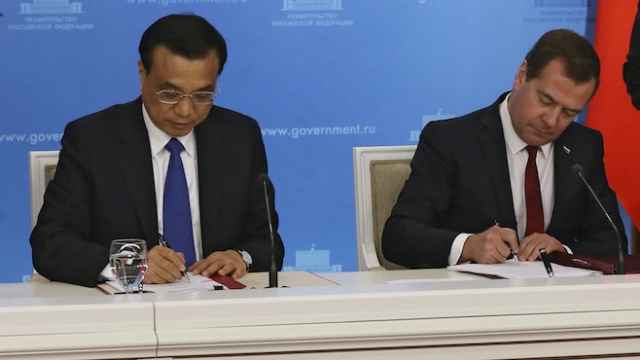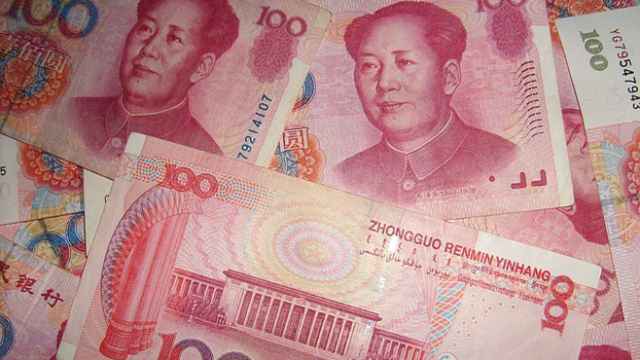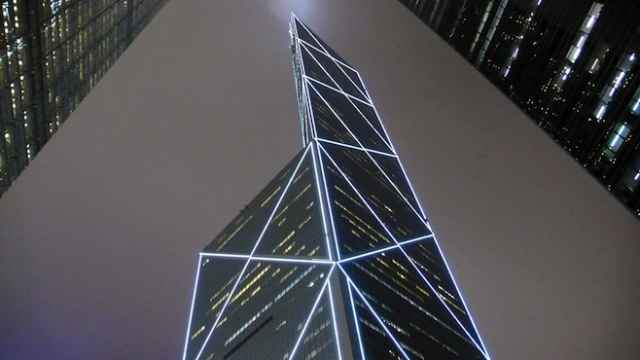Russia and China intend to increase the amount of trade settled in the yuan, President Vladimir Putin said Monday in remarks that would be welcomed by Chinese authorities who want the currency to be used more widely around the world.
Speaking at an Asia Pacific Economic Cooperation summit in Beijing, Putin also ruled capital controls for Russia and vowed to keep its foreign debt level below 15 percent of gross domestic product, or GDP.
"As part of our cooperation with this country [China], we intend to use national currencies in mutual transactions," Putin said.
"The initial deals for ruble and yuan are taking place. I want to note that we are ready to expand these opportunities in [our] energy resources trade."
Spurred on by their often testy relations with the United States, Russia and China have long advocated reducing the role of the dollar in international trade.
Curtailing the dollar's influence fits well with China's ambitions to increase the influence of the yuan and eventually turn it into a global reserve currency. With 32 percent of its $4 trillion foreign exchange reserves invested in U.S. government debt, China wants to curb investment risks in dollar.
The quest to limit the dollar's dominance became more urgent for Moscow this year when U.S. and European governments imposed sanctions on Russia over its support for separatist rebels in Ukraine.
Regarding Russia's economic problems, Putin said he was hopeful speculation against the ruble, would stop soon, arguing there was no fundamental reason for its slide.
Hurt by plunging oil prices and a slump in exports and investment inflows, the ruble has dived nearly 30 percent on the dollar this year, feeding concern of a currency crisis.
To support the flow of credit into the Russian economy, Putin said Russia planned to use part of its "sovereign reserves" to improve access to loans to draw foreign investment.
"In order to attract investors, reduce risks, co-finance projects, we intend to use our development institutions, use part of our reserves accumulated in the sovereign funds … [use] our other resources [to] improve access to credit lines," he said.
"I will again repeat — we are not planning to impose limits on capital movements," he said.
"There will be no increase of sovereign debt," he added. "We are planning to keep it at a safe, manageable level of below 15 percent of GDP."
A Message from The Moscow Times:
Dear readers,
We are facing unprecedented challenges. Russia's Prosecutor General's Office has designated The Moscow Times as an "undesirable" organization, criminalizing our work and putting our staff at risk of prosecution. This follows our earlier unjust labeling as a "foreign agent."
These actions are direct attempts to silence independent journalism in Russia. The authorities claim our work "discredits the decisions of the Russian leadership." We see things differently: we strive to provide accurate, unbiased reporting on Russia.
We, the journalists of The Moscow Times, refuse to be silenced. But to continue our work, we need your help.
Your support, no matter how small, makes a world of difference. If you can, please support us monthly starting from just $2. It's quick to set up, and every contribution makes a significant impact.
By supporting The Moscow Times, you're defending open, independent journalism in the face of repression. Thank you for standing with us.
Remind me later.


